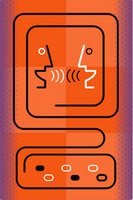 The following is a post by the blogmaster (Kevin McGrew), who is also a member of IQs Corner Virtual Community of Scholars project.
The following is a post by the blogmaster (Kevin McGrew), who is also a member of IQs Corner Virtual Community of Scholars project.Waber, D, Gerber, E, Turcios, V. & Wagner, Er. (2006).
Executive Functions and Performance on High-Stakes Testing in Children From Urban Schools. Developmental Neuropsychology, 29(3), 459-477. (click here to view article)
Abstract
- High-stakes achievement testing is a centerpiece of education reform. Children from socially disadvantaged backgrounds typically perform more poorly than their more advantaged peers. The authors evaluated 91 fifth-grade children from low-income urban schools using clinical neuropsychological tests and behavioral questionnaires and obtained fourth-grade scores on state mandated standards- based testing. Goals were to determine whether executive functions are selectively diminished in children from poor urban environments and to evaluate to what extent integrity of executive functions is associated with test scores. Neuropsychological variables (particularly executive functions) accounted for 40% of the variance in English scores and 30% in mathematics. Efforts to improve children’s academic achievement should consider developmental factors as well as curricular content.
Additional comments/conclusions by authors (italics and underline added by blogmaster)
- Although there are many definitions of executive functions, it has been suggested that “a common feature among them is the executive system as a set of supervisory functions enabling regulatory control over thought and actions”
- Neurodevelopmentally oriented studies implicate a mediating role for attention in the relationship between social adversity and academic success. Findings from the National Institute of Child Health and Human Development (NICHD) Early Child Care Research Network indicate that the relationship between family environment and school readiness is partiallymediated by attentional factors—specifically, sustained attention and inhibition (NICHD Early Child Care Research Network, 2003).
- Collectively, these more recent findings suggest that neuropsychological functions, especially executive functions, are by no means “hard-wired,” especially for children reared in disadvantaged communities. For these children, in fact, environmental factors are likely to play a far greater role in outcome (relative to biological factors) than they are for children from backgrounds of greater social and economic advantage.
- Children’s performance on high-stakes achievement testing bears a clear and systematic relationship to their neurobehavioral characteristics, especially executive functioning. Our neuropsychological measures accounted for 30% to 40% of the variance in test scores. Although this finding will not be particularly surprising to neuropsychologists, it reflects a dimension that has not figured prominently in the debate about the use and interpretation of results on these tests.
- Tthe children performed at or above age expectation on most of the neuropsychological tests (Blog editor note - these were primarily direct test measures of Gs, Gsm-working memory, and planning) but they exhibited a greater than expected number of problems on measures sensitive to aspects of executive functions, especially as manifested in everyday behavior. Overall psychosocial adjustment was within normal limits.
- In sum, these children are by no means globally diminished in terms of their basic information processing or their psychosocial adjustment. Nevertheless, they are experiencing a markedly increased rate of poor performance on the standards- based achievement tests despite their competence on neuropsychological mmeasures that are often indicative of risk for learning problems, such as working memory (Gsm-MW) and processing speed (Gs) [Blog editor comment - Gsm+Gs is often refered to as cognitive efficiency in some CHC theory circles--e.g., Cognitive Efficiency cluster on WJ IIII]. They do, however, exhibit relatively selective impairment of metacognitive skills and, to a lesser extent, of behavioral regulation, particularly as manifested in everyday classroom behavior, which appears to be strongly associated with achievement test performance.
- The CART analyses complemented these findings. Based on scores on one or two key measures,wewere able to accurately predict success or failure on the standards-based achievement tests for upwards of 80% of the children. Metacognitive skills and processing speed best predicted performance on the English test, and working memory predicted mathematics performance.
- In summary, children from urban low-income schools exhibit problems involving executive functions, especially metacognitive skills, and these appear to be related to their performance on high-stakes standards-based testing. Although the standards-based tests are consequential for both the children and their schools, it is important to recognize that these tests representonlyonesample of performance and do not necessarily reflect day-to-day capacity to learn. Executive functions, moreover, maybe especially relevant to test-taking skills, and diminished executive functions may thus be a particular source of disadvantage in terms of achievement test scores.A focus on child-centered factors to complement the current focus on curricular content could enhance efforts to improve academic performance of these children, not only on these tests but also in their everyday academic attainment.
Technorati Tags: psychology, educational psychology, education, school psychology, neuropsychology, neuroscience, cogntion, IQ, intelligence, CHC theory, processing speed, Gs, working memory, Gsm, executive functions, NEPSY, D-KEFS, WISC-IV, BRIEF, BASC, NCLB, conative, large scale assessment
powered by performancing firefox
